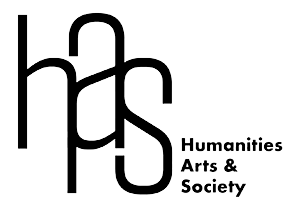
- This event has passed.
HAS 03: Call for Contributions – Truth and Belief
09 December, 2020
HAS Magazine launches a call for contributions for its third issue to be published in May 2021.
Download the newsletter in French
 HAS Magazine launches an open call for contributions for its third issue to be published in May 2021.
HAS Magazine launches an open call for contributions for its third issue to be published in May 2021.
The goal of HAS Magazine is to discuss pressing topics through the analysis of a wide range of themes in the humanities, social sciences, and the arts. Conceived as a magazine for the broadest possible range of readers, HAS offers a space for the most creative, enlightening, imaginative, and socially relevant interactions of the humanities and the arts.
Our aim is not simply to report on existing ideas or to reproduce art that examines issues of importance but to contribute to achieving actual progress in cultural exchange and multi-disciplinary collaboration. Information, education, creativity, communication, and thought provocation will be merged in order to provide a platform for positive change in society—local and worldwide—with the help of the humanities and the arts. We connect curious readers with enthusiastic writers and practitioners willing to work to improve upon current global challenges through demonstrations of how the humanities and the arts can impact society.
HAS Magazine is an initiative of the Humanities, Arts and Society project with UNESCO-MOST, the International Council f Philosophy and Human Sciences, Mémoire de l’Avenir and Global Chinese Arts & Culture Society.
We welcome contributions from scholars, researchers, critics, practicing artists, and any interested parties who find the ab important and would like to be part of the project. HAS Magazine is not an academic journal, and texts should be written in language accessible to a broad, non-expert audience. HAS is not a commercial venture and is available online for free in French and Chinese in order to reach the broadest possible audience. Due to the non-profit nature of the publication, content is on a voluntary basis.
The published contributions include essays, reviews, critiques, interviews, artistic projects, video and photo reportages, an The editorial committee is constituted by members of UNESCO-MOST, the International Council for Philosophy and Huma Sciences and Mémoire de l’Avenir.
Politically biased or discriminatory content will not be accepted. Promotional or commercial content should be avoided.
The theme of the second issue is Truth and Belief. We aim to investigate this topic from a multi- and cross-disciplinary per —including but not limited to philosophy, history, anthropology, archaeology, literature, sociology, economics, political science humanities scholarship and all forms of the Arts.
More information about the theme
In the 21st century, information is produced and shared at a record pace, with unprecedented reach. Web 2.0—aka the Participative Internet—is radically transforming our ways of consuming information. This development is both positive and On the one hand it allows people to organize and crowdsource ideas more efficiently, but on the other it is increasing the a false information being spread without fact-checking. Conflict, discrimination, ideological blindness, the denial of global warming and COVID-19, and beyond, are nurtured by dis- and mis-information that is difficult to regulate. Although fake news is not phenomenon, the broad information flow of today, enabled by social media, has allowed it to flourish. From these channels culture based on influence has emerged, in which personalities can directly communicate with followers who trust them, a their behavior. As we are bombarded with information created by influencers with different interests and intentions, how d distinguish between facts, opinions, and beliefs?
Critical thinking and understanding have become more important than ever amidst this global information flow. The role an responsibility of education—and actors such as artists, journalists, and scientists—has always been to inform and to quest domains—the arts, humanities, and sciences—are the principal drivers of critical thinking, social investigation, and active l By questioning dogmas and exploring new ways of living, they have the capacity to upend outdated paradigms and help s its transformative endeavor. They are important in fighting denialism and confirmation bias, which favor facts that are co with one’s already-held beliefs. These disciplines encourage inclusive understanding, which helps us see that our local act global impact.
In the third issue of HAS Magazine, we seek to explore the flow of information, knowledge, bias, and truth.
Investigations may cover fields and questions such as epistemology, the social construction of reality, the Information Age influence, cognitive bias, cognitive dissonance, anti-intellectualism, scientific ignorance, and denialism.
Artistically, this may include photography, illusionary art, forgeries, fakes, art as information, and artistic investigations of objectivity/subjectivity and the nature of truth and reality.
